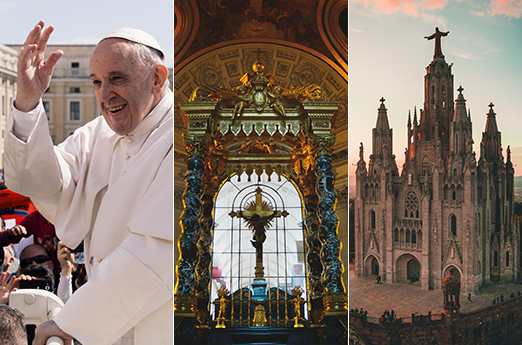The term “spiritual” is one of those words which, although it had a deep meaning in the early days of Christianity and in all the great epochs of the history of the Church, sometimes loses its richness and dilutes in superficial meanings, or turns into a synonym of purely negative expressions – such as “incorporeal, immaterial” – and becomes one of the many “uplifting” words, synonymous with “religious” or “supernatural”[1].
For Origen, the “spiritual” man is a “practical” man, because the Spirit is acquired and manifests itself in action. According to the Alexandrian theologian, the “spiritual” man is the one where “theory and “practice”, care of neighbor and spiritual charism for the good of the neighbour. And, between these two charisms, he emphasizes above all what he calls diakrisis, that is, the gift of discerning the variety of spirits.
spiritual fatherhood
What’s needed.
1) To be a “spiritual father”, it is not necessary to be a man. A woman can be too; of course, in this case, she will not be called “father”, but rather “mother” spiritual.
Many female religious congregations have a beautiful custom: that of calling the superior “mother”, while the others are “sisters”. This practice is rooted in a long ecclesial tradition. He was born in the East, among the monks and nuns of the desert: in the desert, there was no “anti-feminism”, because any Christian, man or woman, could be a “monk”; and likewise any Christian, man or woman, could be another’s “spiritual father”.
If there is no fundamental difference between man and woman in spiritual life, why should there be any in “spiritual fatherhood”, that is, in the help that some of us bring to others? Garcia M. Colombás states: “The spiritual father was the man who, filled with the Holy Spirit, imparted the life of the Spirit, begot children according to the Spirit. […] Obviously, like monks, nuns could be full of the Spirit. These received the name of “amma” or “mother”, which corresponds to the masculine title of “abba”. […] “Amma” does not necessarily imply the exercise of spiritual motherhood, but the ability to exercise it; it would therefore be wrong to systematically translate this name as “abbess” or “superior” of a female community. Many holy women, no doubt more numerous than holy men, may have concealed their high spiritual quality, which would have enabled them, if given the opportunity, to guide other souls along the paths of God “[2].
This article is reserved for paid subscribers. Please subscribe to continue reading this article
Subscribe

welcome to
La Civilta Cattolica!
This article is for paying subscribers only.
Please login or subscribe to continue reading this article




